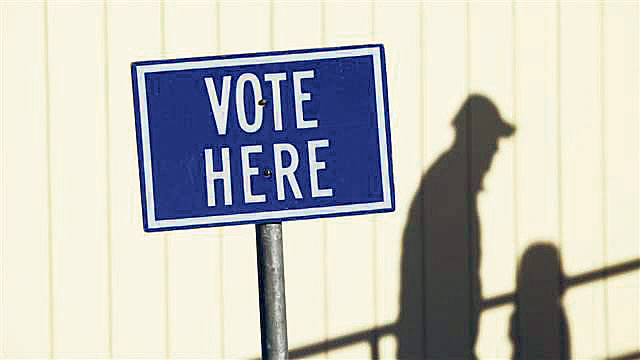In a democracy, the right to vote is the most privileged form of power vested in the people. Not only does it give people the opportunity to choose their representatives, it also puts them and their representatives into the virtuous cycle of responsibility and accountability. According to Nepali laws, an individual must be 18 to be eligible to vote, while the constitution guarantees citizenship 16. This means that even after holding a citizenship, a 16-year-old youth is deprived of voting rights for two years. In this article, we highlight this contradiction and stress that anyone who holds a citizenship must be given the right to vote.
 The National Youth Policy (NYP) 2010 of Nepal defines “youth” as those belonging to the age group 16-40, which is 42 percent of the total population. The age group between 16 and 18 number about 1.1 million (5 percent of population). This five percent qualifies for citizenship but are deprived of voting rights.
The National Youth Policy (NYP) 2010 of Nepal defines “youth” as those belonging to the age group 16-40, which is 42 percent of the total population. The age group between 16 and 18 number about 1.1 million (5 percent of population). This five percent qualifies for citizenship but are deprived of voting rights.
‘Youth’ is a highly discussed age group in the demographic studies of every country. They represent both benefits and challenges. Stakeholders respond to youth through different sets of policies and programs, for development and social change.
Different strokes, different folks
Youth population is different across counties and institutions. United Nations, for instance, considers youth as an age group between 16 and 24; according to the World Bank it is the population between 15 and 24; in India those aged between 13 and 35 are considered youth; the corresponding figures for Pakistan and Japan are 13-35 and 0-24 respectively; whereas in Nepal, the National Youth Policy 2010 defines it to be within the age bracket of 16-40 years.
Sudurpaschim Province: CM Shah to seek confidence vote in new p...

Policy eagles see youth as the cream of all age groups, because it is the time when an individual reaches his/her highest biological (bodily integration), psychological (intellectual ability, thinking, reasoning), social (responsibility, roles, values, marriage) and economic (income generation, career) maturity. Moreover, other age categories, mainly children and elderly, are also largely dependent on this age bracket. The youth are the drivers of development, and also integral entries in demographic listings.
Despite all these national and international considerations, it is worth noting that this age group, generally referred to as the harbinger of change, is the most unfortunate in Nepal, as they are denied the right to vote. Isn’t curtailing the basic political right of a group with such high potential absurd? This is the question that five percent of our population is asking today.
After World War I, most countries set voting age as 21 or higher. Later, many reduced it according to their convenience. However, by the beginning of the 21st century, in common practice 18 became the most common voting age. But different countries have different voting ages. Cuba, Isle of Man, Nicaragua and Guernsey allow their citizens to vote at 16. In Cameroon, Fiji, Malaysia, Singapore, and a few other countries, citizens have to wait until they are 21. A few countries have 17 or 19 as voting age.
Not an anomaly
Surprisingly, a few countries have rationalized voting age on the basis of election. In Austria, general voting age is 16, but for European parliament elections it’s 18. Similarly, in Israel, general voting age is 18, but for municipal election it is 17. Citizens aged 16-18 in Bosnia, Serbia and Montenegro acquire the right to vote if they are employed. In a nutshell, voting age at 16 is generally not a new concept. Given the political will, it can be adopted even in Nepal, considering that the government has already recognized the age group of 16-17 as ‘youth’ having citizenship rights.
Additionally, in global context there are organizations like Vote 16 and the Socialist Party of the US which have been advocating for lower voting age. But the idea of reducing voting age had been proposed even earlier. In 1986, it was demographer Paul Demeny who floated the idea of reducing voting age. His idea was later named “Demeny Voting system” by Warren C. Sanderson. The idea is to allow children to voice their political agendas through parents or guardians. Generally, in this system, parents would cast a proxy vote for each of their dependent children. The vote is considered a ‘half vote’; if parents’ choices are different, the child’s vote would be counted as ‘split vote’. This idea was discussed in Germany, Japan, Hungry, and the debate continues. In 2003 and 2008 parliament elections, Germany introduced the idea of Demeny voting.
The debate of lowering voting age is not yet in mainstream political agenda in Nepal, and has not become a popular issue. When countries around the world are discussing ways to address children’s political voice through votes, Nepal is still constraining the voting rights of five percent of its population. It is high time we brought this issue to the table with necessary revision in our legal arrangements.
Although the five percent cannot vote in the upcoming election, those who are eligible must exercise their right to vote, fully participate in the second Constituent Assembly election, and take the nation forward.
From Republica, November 12, 2013

































